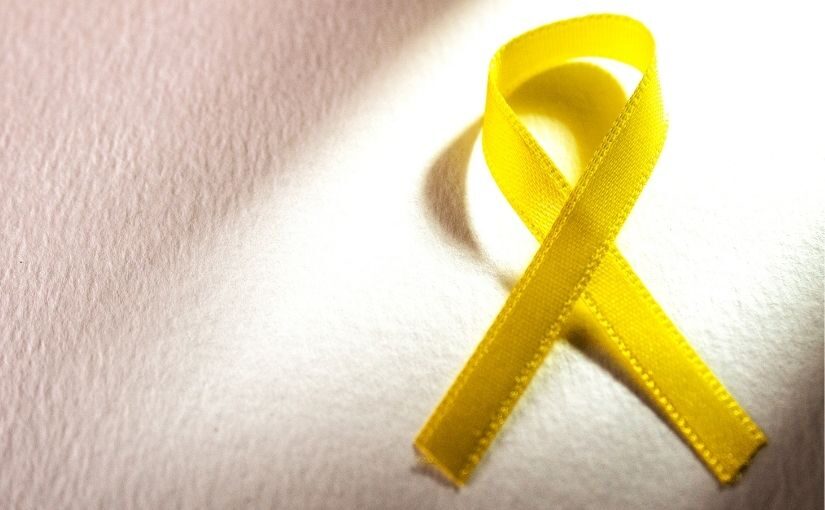The month of September is Suicide Prevention Awareness Month. As a faith community, we are using this article, along with each WISE Moment for Mental Wellness page of the weekly order of worship, to raise awareness on this stigmatized topic. As a WISE Congregation for Mental Wellness, it is our desire to offer a safe space to talk about and learn the warning signs of suicide, offer resources to those who may have thoughts of suicide, offer support to those who are family or friends of individuals who have completed suicide, and discover ways in which we can help prevent suicide.
It can be alarming if someone you love talks about suicidal thoughts. It can be even more frightening if you find yourself thinking about giving up on life. It can be helpful to have some tools to draw upon when a person demonstrates warning signs such as:
- Increased alcohol use
- Aggressive/impulsive/reckless behavior
- Withdrawal from family/friends/community
- Dramatic mood swings
Suicidal behaviors are a psychiatric emergency. If you or a loved one take any of these steps, seek immediate help from a mental health care provider or call 911:
- Collecting and saving medications or buying a weapon
- Giving away possessions
- Tying up loose ends, paying off debts, organizing personal papers or effects
- Saying goodbye to friends and family
Research has found that 46% of people who complete suicide had a known mental health condition. Several other factors can come into play which may put a person at risk such as:
- A family history of suicide
- Substance use which causes mental highs/lows (More than 1 in 3 people who complete suicide are under the influence of a substance at the time of death)
- Access to firearms
- A serious or chronic medical illness
- Gender (More women than men attempt suicide, but are 4 times more likely to complete it)
- A History of trauma or abuse
- Prolonged stress
- A recent tragedy or loss
Supporting people who are in a suiciderelated crisis is key. Here are some ways to approach the crisis:
- Talk openly and honestly.
- Don’t be afraid to ask questions like, “Do you have a plan for how you would kill yourself?”
- “Can I help you call your counselor/ psychiatrist?”
- Remove potential means by which the person may harm themselves (guns, pills, knives).
- Express empathy and concern.
- Don’t debate whether suicide is right or wrong.
- If you are nervous, try to limit pacing or fidgeting.
- Call for professional help.
- Be patient and present until that help arrives.
If a family member or friend struggles with suicidal ideation day-to-day, let them know that you are there and are willing to talk with you about what they are going through. Make sure to maintain and open and compassionate mindset. Active listening and being “present” with them will go a long way in helping them feel heard and validated. Encourage them to utilize the help of a mental health professional and offer to help them find one and facilitate the initial call when appropriate.
As we continue to be a Welcoming, Inclusive, Supportive & Engaged congregation for Mental Wellness, we will observe Suicide Prevention week by incorporating liturgy and prayer focus on Sunday, September 12, 2021 during our 10:00 a.m. worship service.
We are also offering a book study and discussion sessions based on The Lifesaving Church: Faith Communities and Suicide Prevention by Rachael A. Keefe.
Rachael A. Keefe is the pastor of Living Table United Church of Christ in the Twin Cities and a former pastoral counselor and clinical chaplain. Since being ordained by the UCC in 1992, Keefe has served in many different ministry settings both traditional and decidedly nontraditional, in Pennsylvania, Massachusetts, New Hampshire, and Minnesota.
Rachael is currently a PhD student in sociology at the University of Minnesota and is also a student at St. Catherine’s University working toward a certificate in spiritual direction. She is an artist and a poet.
In this book, Rachael tells the story of her own experiences of suicidality, suicidal behaviors, and romancing of death at age 15. As a pastor and clinical chaplain, her desire is to facilitate conversations within the Body of Christ about mental wellness and the need to speak into the silence that surrounds suicide. She frequently says, “As with one, so with all. If one member of the church is mentally ill, the Body of Christ is mentally ill. If one member is suicidal, the Body of Christ is suicidal and so on down the line. The Body of Christ is a lifesaver.”
